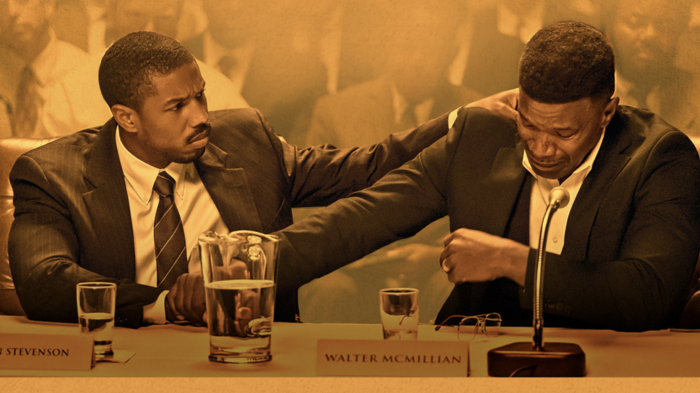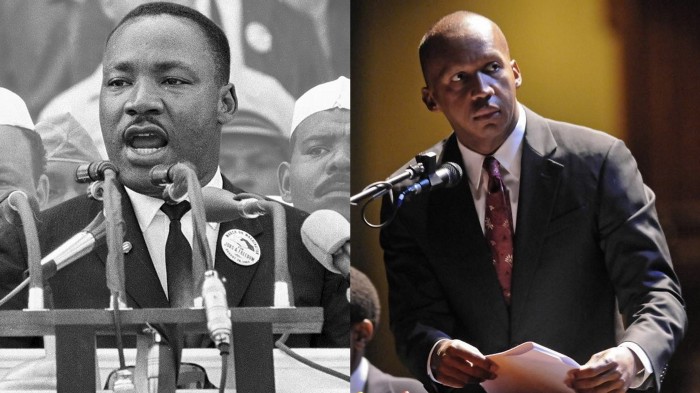Let’s Hope Disney’s “Hercules” Remake isn’t Another “Aladdin”
Here's what Disney got wrong with "Aladdin" and how it can avoid those pitfalls with "Hercules."
“Through this work, I’ve learned that each of us is more than the worst thing that we’ve ever done; that the opposite of poverty isn’t wealth, the opposite of poverty is justice; that the character of our nation isn’t reflected on how we treat the rich and the privileged, but how we treat the poor, the disfavored, and condemned…” -Bryan Stevenson, Just Mercy
Black lives matter. Purely and simply. The fact that in 2020 this is still a point of debate shows how little we have progressed.
For too long we have ignored the injustices that have plagued the United States since its inception. Now the George Floyd movement is making it impossible to ignore any longer. It is forcing a national dialogue about systemic racism, police brutality, the criminal justice system, the for-profit prison system, and systemic poverty. This movement isn’t just about having a conversation, but about listening to Black people and hearing what they experience and endure on a daily basis.
Two movies that do a fantastic job in conveying this are Selma (2014) and Just Mercy (2019). For the month of June, both of these films have been made free to watch on streaming by their respective studios. Any place you would typically rent movies — YouTube, Amazon Prime, iTunes, Google Play — you can rent Selma and Just Mercy free of charge.
“Beginning today, Paramount is making Selma available for free rental on digital platforms through the end of the month. 55 years after the historic marches from Selma, as we witness the expression of decades of collective pain, we should reflect on Dr. King’s words: ‘injustice anywhere is a threat to justice everywhere.’ We hope this small gesture will encourage people throughout the country to examine our nation’s history and reflect on the ways that racial injustice has infected our society. The key message of Selma is the importance of equality, dignity and justice for all people. Clearly, that message is as vital today as it was in 1965.” -Paramount Pictures
“We believe in the power of story. Our film Just Mercy, based on the life work of civil rights attorney Bryan Stevenson, is one resource we can humbly offer to those who are interested in learning more about the systemic racism that plagues our society. For the month of June, Just Mercy will be available to rent for free across digital platforms in the U.S. To actively be part of the change our country is so desperately seeking, we encourage you to learn more about our past and the countless injustices that have led us to where we are today.” -justmercyfilm.com
Selma chronicles Dr. Martin Luther King, Jr (David Oyelowo) and the people around him as they led the campaign to secure voting rights for Black citizens. In 1965, they marched from Selma to Montgomery, Alabama. Ava DuVernay crafts an emotionally powerful film that punches you right in the gut. It opens you up to the reality of the civil rights movement and just how hard the fight for it was.
I have a special connection to Selma. It was the movie that truly exposed me to the reality of segregation and racism and fueled my passion for activism and anti-racism. Movies hold the power to change people and to change perspectives, and that is what I personally experienced with Selma. With it streaming this month for free, I hope that other people can have that experience, too.
Today, I think a lot of White people have rewritten how Dr. King was perceived when he was alive. He is widely celebrated in our current culture; he’s taught in classrooms and has his own national holiday. When Dr. King was marching and fighting for civil rights in the 1960s, he was despised by the majority of the country, so much so that he was murdered for his beliefs. While the history we were taught may have downplayed this reality, DuVernay’s film captures it and confronts it head-on.
In the wake of George Floyd’s death, I have seen a lot of people — mainly White people — throwing around Dr. King’s quotes out of context as a means to put down or discredit the validity of today’s protests. The people who are doing this either did oppose Dr. King when he was alive, or most likely would have opposed him had they been alive at the time.
Dr. Martin Luther King, Jr. is a vitally important figure in history who led the fight for equal rights, but that fight didn’t end with him. We need to continue to march and protest for the dream that he had; a dream yet fully obtained. Ava DuVernay’s masterpiece, Selma, is an important film to watch as it shows us the blood, sweat, and tears that got our nation to this point, as well as reminding us that there is still a lot of work left to be done.

Just Mercy follows Bryan Stevenson (Michael B. Jordan), an up-and-coming defense attorney who moves to Alabama in order to open the Equal Rights Initiative, an organization providing free counsel to death row inmates who did not initially receive a fair trial. His first client is Walter “Johnny D” McMillian (Jamie Foxx) who was falsely convicted of a brutal murder with flimsy evidence. The film follows Stevenson’s efforts to get Johnny D a retrial.
This film gives a clear look at not just how the “justice” system operates, but how it functions differently for Black people. There was a minimal amount of evidence —clearly filled with holes — against Johnny D, and a strong amount of evidence proving his innocence that was ignored. Yet, he was still found to be guilty and was sentenced to death. The second that Bryan arrives in Alabama and tries to find the truth, he is immediately met with opposition. Everyone would rather have an innocent man die than admit that they convicted the wrong person.
Just Mercy spotlights the death penalty, an issue that isn’t discussed much in movies. According to the film, “for every nine people who have been executed in the U.S., one person on death row has been exonerated and released.” The rate of error for the death penalty is absolutely shocking, and leaves an abundance of room for innocent people to be put to death. Just Mercy puts this front and center and shows what this does to the families of those falsely convicted. As Johnny D’s daughter says in the film, “I feel like we were all put on death row.”
Filled with beautiful performances from Michael B. Jordan, Brie Larson, Jamie Foxx, Rob Morgan, and Tim Blake Nelson, Just Mercy is an inspiring and eye-opening movie. It is one that I didn’t think got enough credit and acclaim when it came out in 2019, and I hope with it now streaming free that more people will have a chance to see it.

Selma and Just Mercy are incredibly complimentary movies, as they show different sides of a larger issue. Selma shows the fight for civil rights through marching and protests, circumventing the system that was designed to be against them; Just Mercy shows the fight for civil rights through the courts and the law, tackling the corrupted system head-on. Both are incredibly illuminating about how the system has been specifically and deliberately crafted to suppress people of color, specifically Black people.
For someone looking to learn more about what Black Lives Matter stands for and why people are marching and protesting, these films are a good place to start. There are countless others to watch as well. I wrote an article recommending 7 movies about police brutality and systemic racism made by Black filmmakers, which you can read here. That list includes Selma. I also put together a list of all 53 movies and television shows Netflix has compiled for their new Black Lives Matter collection, which you can also read here.
Selma and Just Mercy are a good starting point for educating yourself on the realities of racism in the United States, but it shouldn’t end there. There is a lot of content out there created by Black filmmakers that we should be watching and supporting.
Author: Nathanael Molnar, originally published [6/20/2020]
Related lists created by the same author
Here's what Disney got wrong with "Aladdin" and how it can avoid those pitfalls with "Hercules."